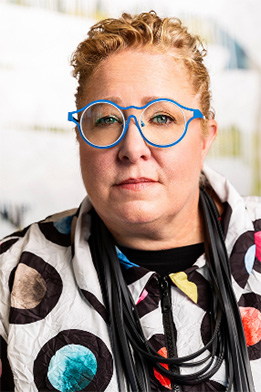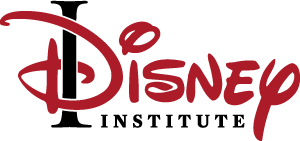Featured Speakers
Jennifer Moss
Sunday, September 29 | 5:00-6:15 p.m.
 We’ve come through a crisis, and for better or worse it changed us. We gained plenty of skills — how to pivot on the fly, work from anywhere, adopt new tech, build resiliency. We might be feeling hopeful, but we have a long way to go — Gallup says that less than 1 in 4 people are thriving at work. If the dust is settling and our well-being is (re)booting in our personal lives, why does work sometimes feel so “meh?” We might feel less confident, less effective, less connected (blame that on chronic stress!) but we’re also hungry for purpose and meaning. We want our spark back! To kick off the conference, award-winning author and journalist Jennifer Moss will help us discover novel ways to bring a sense of purpose back to our work and our life.
We’ve come through a crisis, and for better or worse it changed us. We gained plenty of skills — how to pivot on the fly, work from anywhere, adopt new tech, build resiliency. We might be feeling hopeful, but we have a long way to go — Gallup says that less than 1 in 4 people are thriving at work. If the dust is settling and our well-being is (re)booting in our personal lives, why does work sometimes feel so “meh?” We might feel less confident, less effective, less connected (blame that on chronic stress!) but we’re also hungry for purpose and meaning. We want our spark back! To kick off the conference, award-winning author and journalist Jennifer Moss will help us discover novel ways to bring a sense of purpose back to our work and our life.
About Jennifer Moss:
Jennifer Moss is an award-winning writer, international speaker, and workplace culture strategist with clients ranging from startups to Fortune 500 companies. Her most recent book, The Burnout Epidemic, was named one of the 10 Best New Management Books for 2022 by Thinkers50 and shortlisted for the 2021 Outstanding Works of Literature Award. She is a nationally syndicated radio columnist and freelance journalist and currently writes for Harvard Business Review. Her work has also appeared in CNN, TIME, The New York Times, The Wall Street Journal and The Washington Post.
Heather McGowan
Tuesday, October 1 | 2:30-3:45 p.m.
 Today and in the future of work, the most in-demand skill will never be the one you have now — it’s the one you can develop tomorrow. Humans have an unmatched ability to learn and adapt, from living in climates previously uninhabitable to creating tools that can, at first blush, seem to outperform our abilities. Consider the ATM released about 50 years ago. When ATMs became widespread, it was assumed the position of bank teller would be outsourced to history, when in fact the position of bank teller has grown continuously and slightly faster than the labor force as a whole. While tellers required per branch declined, the demand for branches increased, and along with it the demand for bank tellers.
Today and in the future of work, the most in-demand skill will never be the one you have now — it’s the one you can develop tomorrow. Humans have an unmatched ability to learn and adapt, from living in climates previously uninhabitable to creating tools that can, at first blush, seem to outperform our abilities. Consider the ATM released about 50 years ago. When ATMs became widespread, it was assumed the position of bank teller would be outsourced to history, when in fact the position of bank teller has grown continuously and slightly faster than the labor force as a whole. While tellers required per branch declined, the demand for branches increased, and along with it the demand for bank tellers.
What does all this mean? It means that the future of work is human. Once we escape our outdated seeking of single-disciplinary skill sets in fear of being replaced by technology, we can focus on developing our uniquely human skills, notably our ability to learn and adapt to emerging technologies.
About Heather McGowan:
Future-of-work strategist Heather E. McGowan helps leaders prepare their people and organizations for the post pandemic world. As a keynote speaker, she gives lucidity to complex topics through her research-rich graphic frameworks and powerful metaphors. In 2017, LinkedIn ranked her as its #1 global voice for education, and in 2020, she was listed by Forbes as one of the Top 50 Female Futurists. She is the coauthor of The Adaptation Advantage and The Empathy Advantage.
